We are excited to introduce the Health and the Public Impact Fellows and their projects.
The aim of this scheme is to support a cohort of UCL staff as they deliver a research impact project at the interface between health and society. The Fellows come from a broad range of disciplines, career paths and faculties, and the Fellowship will enable them
to work at the interface between science and society as a pathway to demonstrable impact on public health and patient outcomes
to become confident and skilful communicators of their work to diverse audiences.
The fellows are now wrapping up their projects - hear from them in their own words on the Impact Fellowship Podcast (weblink) or expand below for their own written recollections, individual links to the podcasts, and to read transcripts. Part of their training was also open to all staff at UCL - to find out more, visit the Health and the Public Impact Fellowship Training Programme (weblink.) We appointed ten Fellows in the 22-23 academic year.
The Fellows are:
- Amy Harrison - IoE
- What is your work at UCL about?
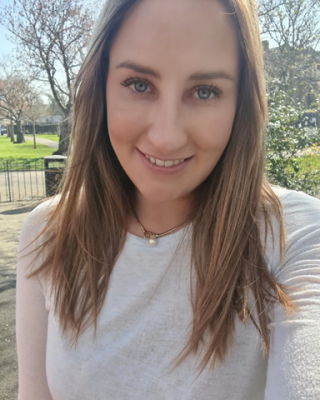
I’m an Associate Professor in Psychology and Clinical Psychologist. I teach final year psychology with education students how to deliver cognitive behavioural therapy and I supervise undergraduate and PhD research projects on eating disorders. My research looks at the social, emotional and cognitive factors that perpetuate eating disorders, novel treatment adjuncts for people with severe and enduring forms and illness and factors that protect people from developing eating disorders.
What is your favourite thing about the work you do?
I most enjoy collecting data from participants as I am a real ‘people person’ and love meeting and working with lots of different people and hearing about their experiences and wisdom.
Tell us a bit about your Impact Fellowship project.
Previous research from my lab has found that in a cohort of 8922 children, decision-making, measured using the Cambridge Gambling Task (Rogers et al., 1999) at ages 11 and 14 predicts eating disorder symptoms at ages 14 and 17 (Harrison, Francesconi & Flouri, 2022, BMJ Open). Teaching advantageous decision-making in childhood may benefit public health by preventing eating disorder symptoms emerging in adolescence.
I used the expertise of 14 boys and girls aged 11-14 to co-design a 'serious game' aiming to teach advantageous decision-making skills around food, exercise and body image.
Across two 90 minute workshops, we co-designed the virtual environment, characters and game scenarios, exploring how to gamify decision-making skills.
Four themes emerged from the data. Next, I'll work with an industry partner engineer to bring these ideas to life in an app-based game
What do you hope will be different by the end of your project?
I hope I will understand far more about how to engage with policy makers and those in positions of power in order to work on better solutions for vulnerable people in society.
You can hear more about Amy's project at the UCL Minds Podcast (direct link) or read a transcript (pdf link.)
What three things would you take to a desert island?
My two year old son, Joshua, because he would love exploring the beaches and the sea.
My phone and some sort of satellite internet provision so that I can keep listening to the podcasts I enjoy while lounging on the beach.
My skincare and make-up to protect me from the sun and because, well, you never know who you might bump into on a desert island...
- Baowen Xue - Institute of Epidemiology and Health Care
What is your work at UCL about?
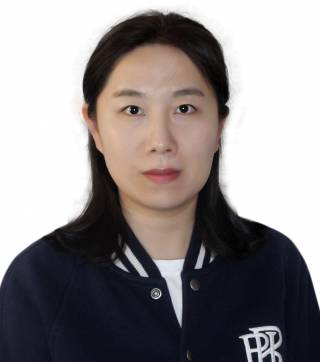
I’m a Research Associate in Epidemiology & Public Health. I teach MSc module 'Basic statistics for medical sciences'. My current research looks at the influence of informal caregiving on people’s health and socioeconomic outcomes, with a particular focus on young adult carers.
What is your favourite thing about the work you do?
I enjoy analysing data and using large datasets to answer different research questions. I love meeting and working with lots of different people. I’m currently working with a consortium of researchers from the UK, Germany, Norway and Spain. I love to hear about their experiences, life and culture.
Tell us a bit about your Impact Fellowship project.
Research at UCL has highlighted the challenges faced by young carers and young adult carers when leaving school, as well as applying to or attending university, college or apprenticeships. I have planned two workshops for young adult carers, in partnership with the Carers Trust and UCL Widening Participation team, to explore this research, their experiences and what needs to change.
These workshops provide a great opportunity for young adult carers to have their say about further and higher education and the barriers to accessing higher education and establishing themselves in the labour market. Young adult carers will also get the chance to learn more about studying at higher education and beyond.
Young adult carers’ stories will be shared with a wide range of stakeholders. UCL researchers and Carers Trust will work together to engage with key decision-makers and influencers across the UK to bring about the changes needed to transform the lives of young adult carers.
You can hear more about Baowen's project at the UCL Minds Podcast (direct link) or read a transcript (pdf link.)
What do you hope will be different by the end of your project?
I hope I will understand more about how to identify and engage with different stakeholders effectively and how to deliver an impact more widely.
What three things would you take to a desert island?
My 3-year-old son. He loves beaches so much.
My phone. Can’t live without my phone.
A box of matches? BBQ fish sounds great.
- Anna Byrne - London Centre for Nanotechnology
What is your work at UCL about?
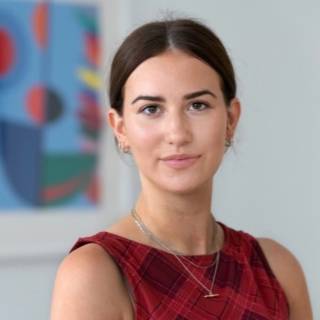
I am Science Writer and Communications Manager on a large £11M+ research programme called i-sense at the London Centre for Nanotechnology, funded by EPSRC. Our research aims to build a new generation of digital sensing systems to identify and prevent outbreaks of infectious disease and antimicrobial resistance, much earlier than ever before. My role is diverse and includes supporting with large-scale grant applications, science editing (ranging from scientific journal articles to online content and reports) and managing internal and external communications and public outreach. I am responsible for public engagement events including science festival attendance and various outreach projects (videos, events, online engagement).
What is your favourite thing about the work you do?
I enjoy supporting proposals for exciting innovative research within such an important field. I enjoy developing creative and accessible scientific outreach events for varied audiences and supporting PhD students and researchers to communicate their research to audiences, including the public and young people.
Tell us a bit about your Impact Fellowship project.
Antimicrobial resistance (AMR) is often termed the ‘silent pandemic’ and is driven by over-exposure to antibiotics. Antibiotics are sometimes unnecessarily prescribed, and in some cases patient adherence to antibiotic regimes is poor. Training about AMR stewardship is required not only for prescribing clinicians but also for patients.
This project aimed to develop accessible and relevant training for young people surrounding AMR, to promote awareness and tackle misinformation.
The project involved providing a training workshop at a secondary school in London for around 120 school children aged 14-16 years old (5 separate classes), which reached a diverse audience of young people, enabling them to learn about AMR and instigate behaviour change surrounding antibiotic use.
There was also a second workshop in a pub setting for around 40 members of the general public (adolescents and adults).
You can hear more about Anna's work on the UCL Minds Podcast (direct link) or read a transcript (pdf link.)
What do you hope will be different by the end of your project?
I hope to reach a diverse audience of young people, enabling them to learn about AMR and instigate behaviour change surrounding antibiotic use. There may also be the potential to widen the programme to different formats (physical or online resources) in different locations (GP surgeries, libraries, universities) with stakeholders (AMR charities or health/education policymakers). Following the major outbreak of COVID-19, it is timely to capitalize on public interest in infectious diseases and address public awareness and misinformation surrounding AMR, a topic which currently receives alarmingly insufficient attention considering the major global threat that it poses.
What three things would you take to a desert island?
My piano, a karaoke machine and a bottle of wine.
- Emma Beard - Institute of Epidemiology and Health Care
What is your work at UCL about?
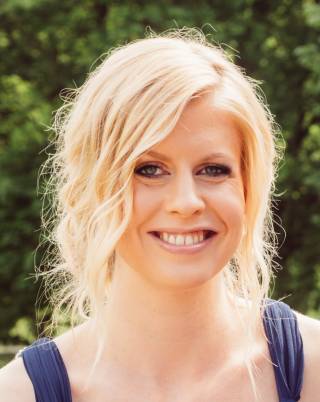
I am Lecturer in Statistics and Quantitative methods; I also have training in epidemiology and am a Chartered Psychologist. My research is in the field of behavioural science with a focus on Addiction. I have a particular interest in statistical methodology and the analysis of large data sets, but also work on interventions, meta-analyses, qualitative studies and smaller community-based surveys.
What is your favourite thing about the work you do?
Part of my research focuses on tobacco control. I have had the opportunity to provide expert input and advice to policy makers such as the All-Party Parliamentary Groups, Office for Health Improvement and Disparities (OHID), Action on Smoking and Health (ASH) and the National Institute for Health and Care Excellence (NICE). It is welcoming to see our research have an impact on public health. I am also privileged to have worked with some of the best tobacco control experts in the field from a multi-disciplinary background.
Tell us a bit about your Impact Fellowship project.
Officially, smoking prevalence in the UK is 13.3%, a figure derived from household surveys. However, the exclusion of "hidden populations" not residing in households, for whom smoking prevalence is high, means that this may be an underestimate. My research for this fellowship suggests that the "hidden population" in the UK is ~1.9 million and that the true prevalence of smoking may be as high as 15.6%.
This coverage error has serious implications because health policies, smoking cessation services and tobacco regulations are all driven by smoking prevalence rates. If we can't see the true scale of the challenge, we also risk leaving many vulnerable populations behind. It is important that this coverage error is reported alongside national statistics and that the public are accurately informed about the margin of error around estimates. This requires a more nuanced conversation about health statistics than usual.
My project was about identifying the size of the coverage error for smoking prevalence statistics and to raise awareness though engaging with stakeholders in government, the Office for National Statistics (ONS) and other relevant bodies, and the public themselves. The long-term goal is to devise a correction error and to explore new ways of explaining statistics to the public. Covid-19 brought all this sharply into popular awareness; I aimed to build upon this to help scientists and government officials to communicate about the errors around risk more effectively.
During the fellowship I have created a report which uses the workbook method to identify the size of the "hidden population" in the UK and the impact of excluding this on smoking prevalence statistics.
As part of this project, I have already consulted with tobacco control researchers, those working with vulnerable populations, and statisticians, who have provided feedback on the report. One-to-one sessions have also been organised with members of the general public who have at some point been part of a "hidden population". Consultations will also be planned with stakeholders in the ONS.
The plan is to reflect upon what emerges from this consultation and host a public event about communicating coverage error and its' implications to the public.
You can hear more about Emma's work on the UCL Minds Podcast (direct link) or read a transcript (pdf link.)
What do you hope will be different by the end of your project?
The findings will obviously have an important impact on those working with population level surveys in the Addictions field. Although a solution might not be found, it is hoped that this project will highlight the issue. It is also a move towards ensuring that we provide the public with accurate information so that they can make informed decisions. The need for this is evident with the COVID pandemic, where many of the public inferred their levels of risk over time from the ONS published data. I also teach research methods across several degree programs in the institute. These findings will feed into these and also offer opportunities for future student projects. Finally, this will be a step forward in improving the estimation of prevalence in public health and also public health modelling which informs policy decisions.
What three things would you take to a desert island?
Mobile phone (assuming there is signal), a boat, and a survival expert to get me home.
- Annemarie Lodder - Institute of Epidemiology and Health Care
What is your work at UCL about?
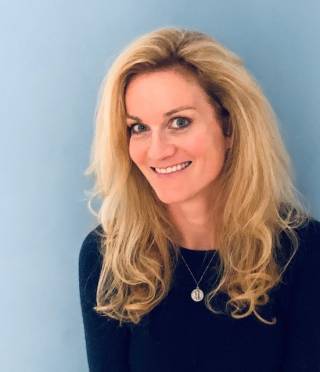
I work on a research project that aims to evaluate the effectiveness of a parenting programme called Strengthening Families, Strengthening Communities. This means I am trying to find out whether parents who attended this programme feel better within themselves, have better relationships with their children and feel more confident about their parenting, than those who have not attended the programme yet. I also teach population health students and supervise undergraduate students working on their final year project.
What is your favourite thing about the work you do?
I love learning about different cultures and speaking to people with different experiences and from different backgrounds. The parenting programme is delivered in a range of languages, and I get to speak (and learn from) parents from all over the world! Luckily, I also like spreadsheets because I spend a lot of time planning and organising data collection too.
Tell us a bit about your Impact Fellowship project.
A common limitation of health research is that the people who would benefit most from the research (such as health interventions), are often underrepresented in research studies. Ethnic minority groups, people living in poverty, older people, homeless people are all groups of people who are less likely to take part in research. There is an increased awareness that research should be more inclusive and health researchers and funders are starting to think more about how to do this. One way is to change the way we reach out and recruit people into our research.
The TOGETHER Study, is a NIHR funded community trial that aims to evaluate the effectiveness of Strengthening Families, Strengthening Communities, a parenting programme designed by the Race Equality Foundation (REF). We hope that by improving family well-being, children health and behavioural outcomes will improve. Because there are stark differences in child outcomes for children from ethnic backgrounds or those living in poverty, the TOGETHER Study aimed to particularly focus on these groups of parents.
As part of the health and public fellowship, I organised a participatory event where 50 people who are interested in making research more diverse and inclusive came together to share experiences and learning to collectively prioritise methods that are most successful in engaging, recruiting, and retaining participants from underserved groups into health research. I worked with REF, NIHR, and members from local communities to deliver the workshop. The aim is to encourage a shift in thinking about the importance of diversity in community health research.
You can hear more about Annemarie's work on the UCL Minds Podcast (direct link) or read a transcript (pdf link.)
What do you hope will be different by the end of your project?
I hope that I am more confident in knowing how and where to showcase my research’s impact.
What three things would you take to a desert island?
If it was just for a day, I would take my bikini, a book and sunscreen, but any longer then I would take my children and partner as I would be very lonely on my own!
- Jo Blodgett - Department of Targeted Intervention
What is your work at UCL about?
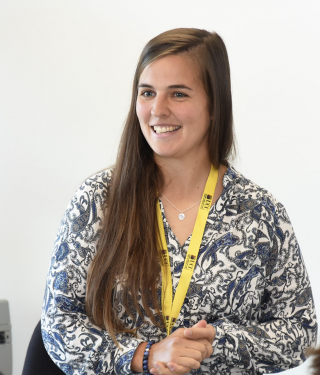
I am a Research Fellow at the Institute of Sport, Exercise and Health and my main research area is physical activity. I primarily work with ProPASS, a large international consortium of cohort studies, aiming to understand how movement across the full 24-hour day (e.g. sleep, sedentary behaviour, various activity intensities) is associated with various health outcomes. My other work includes women’s health, cognitive and physical function, frailty and life course epidemiology.
What is your favourite thing about the work you do?
Hard to pick just one! As a lifelong athlete, I love all physical activity and am passionate about approaching it through a public health lens. I also really enjoy working with large datasets and learning new stats methods. Finally, I am fortunate to work with excellent colleagues including those at my institute who are just as excited about activity as I am and international collaborators from Canada, Australia and Europe!
Tell us a bit about your Impact Fellowship project.
My Fellowship project addresses the need for personalized physical activity recommendations that consider the 24-hour day and its impact on health outcomes. My research uses complex modelling techniques to explore how replacing one activity with another affects diverse health outcomes. However, translating this research into practical recommendations for the public has been challenging.
In June 2023, I collaborated with a research colleague to host a co-production workshop with Time & Talent, a community organization in East London. Our objective was to develop an accessible and effective tool that provides personalised physical activity recommendations. Twelve participants, primarily aged 65 and above, joined the workshop. . Engaging with older adults highlighted considerations like digital literacy, with mixed responses to the use of a digital tool.
Moving forward, our next steps involve creating a blueprint for an online, interactive tool that offers personalised physical activity recommendations for adults of all ages, with a particular focus on those aged 40 and above. We will refine the prototype by seeking further input from the public, including returning to Time & Talent but also involving new groups.
You can hear more about Jo's work on the UCL Minds Podcast (direct link) or read a transcript (pdf link.)
What do you hope will be different by the end of your project?
I want to create sustainable and positive collaborations with the public as this is a big gap in our research area. I also hope to develop a tangible tool (whether complete, proof of concept or blueprint stage) that allows physical activity guidance to be delivered in a personalised way. This is an important step in shifting the UK CMO’s and WHO’s Physical Activity Guidelines towards a 24-hour approach recognising that one size does not fit all.
What three things would you take to a desert island?
Running shoes, snacks and company!
- Libby Sallnow - Marie Curie Palliative Care Department and St Christopher's Hospice
What is your work at UCL about?
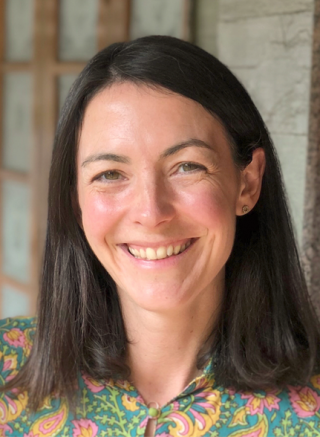
I am a palliative care doctor and clinical academic. My clinical work is in the community, and I support people and their families living with life-limiting illnesses and dying at home. My academic work asks how experiences at these times could be better. Though death, dying and grieving are universal events, affecting everyone in a population, they are seen as medical rather than public health challenges. This means attempts to improve experiences are often limited to health care interventions, missing opportunities to work across society. I have helped develop and lead the field of public health approaches to palliative care to address this.
What is your favourite thing about the work you do?
I enjoy looking at a problem from multiple perspectives. I have worked with projects in death, dying and grieving around the world and I link those insights with conversations I have with people dying at home in London, alongside population-level data, to devise new interventions to improve experiences at these times. It is gratifying to see how these new approaches translate to tangible differences for people as they die.
Tell us a bit about your Impact Fellowship project.
Death, dying, and grieving are complex social events but today we manage them as clinical problems. The Lancet Commission on the Value of Death (2022) presented a new model of how we can understand these universal events, using a complex systems perspective. Through this fellowship, I explored what a systems approach to death, dying and grieving meant to people, what these complex systems look like in practice. and what that means for policy and services.
I worked with St Christopher's Hospice to create a systems approach to death, dying and grieving across their training and development courses and within their strategic programmes. We extended this work to include the World Health Organisation Collaborating Centre in Community Participation in Palliative and Long Term Care in Kerala, India. A series of workshops were conducted in which volunteers, community activists and clinicians mapped their own local death systems. Through this project, we have been able to explore the concept of complex systems and understand how it resonates with participants. Our next step is to work with a group of people with lived experience and a designer in SE London to explore and capture this system as a basis for stimulating local change.
You can hear more about Libby's work on the UCL MInds Podcast (direct link) or read a transcript (pdf link.)
What do you hope will be different by the end of your project?
I hope that death, dying and grieving will be understood as complex social processes, requiring interdisciplinary and cross-sector input, rather than just as health care challenges. Death, dying and grieving should be seen as a part of health and wellbeing and not just their failure.
What three things would you take to a desert island?
A big umbrella, all the books I would love to read but never have time, and I think a box of matches.
- Lion Shahab - Institute of Epidemiology and Health Care
What is your work at UCL about?
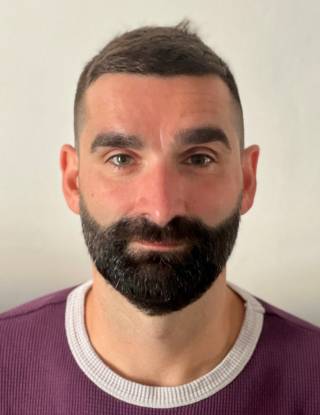
I am a Health Psychologist and Epidemiologist, focusing on non-communicable diseases and addictions. Essentially, my work seeks to help people lead healthier lives, so – as a colleague of mine once said – they die of absolutely nothing. The primary field I work in is in tobacco control. As smoking remains the number one preventable cause of death, it is essential that we find new ways to help smokers stop and to prevent young people from starting to smoke.
What is your favourite thing about the work you do?
My favourite thing about the specific area of work that I am in is that everyone has an opinion on it! Most people either smoke, used to smoke or know someone who smokers. This means my work is something that others can relate to. I also love the fact that the work our team does can have real-world impact and improve population health: for instance, when we evaluate a new policy or intervention, and this is shown to be effective, it may become part of government policy or treatment plans to reduce the burden of tobacco use.
Tell us a bit about your Impact Fellowship project.
Research conducted in the NHS can face significant hurdles, including in relation to administrative tasks, recruitment and getting buy-in from services. In addition, there is a long-time lag between conducting research and translation into clinical practice. Using the field of tobacco research as an example, this project seeks to obtain insights from the following key stakeholders to enable successful impactful research: 1) academic researchers undertaking trials in the NHS; 2) those working in the NHS who support research (including clinicians); and 3) who commission research and services; 4) those who formulate, influence and implement policy (including civil servants, those working in NGOs and politicians); and 5) those with expertise in media and communication who engage with the public to share findings.
Using two ongoing smoking cessation trials of e-cigarettes as case studies (ESCAPE and SCeTCH trials), we will run a one-day workshop with above-named key stakeholder groups to a) identify challenges and opportunities within the existing framework of conducting clinical trials, b) pinpoint misalignments between aims/methods adopted by those conducting research (e.g., in terms of trial design/key deliverables) and the information needs of those formulating policy, commissioning services and those communicating findings to the wider public, and c) develop a step-by-step guidance document to maximise successful translation of research ideas, into intervention evaluation implementation in clinical settings, aligned with tobacco control policy. The workshop output, a transparent toolkit for designing smoking cessation trials in clinical settings to maximise impact, will be hosted online on the UTARG website.
You can hear more about Lion's work at the UCL Minds Podcast (direct link) or read a transcript (pdf link.)
What do you hope will be different by the end of your project?
I hope to improve existing (e.g., communication) and gain new (e.g., implementation/stakeholder and public engagement) skills that I can apply to new projects, disseminate to my team and colleagues as well as integrate in teaching. Of course, I would also hope to have made new connections, learn collaboratively from other staff on programme and build new complementary partnerships at UCL.
What three things would you take to a desert island?
Books; Mobile Phone; Sunscreen!
- Rana Conway - Institute of Epidemiology and Health Care
What is your work at UCL about?
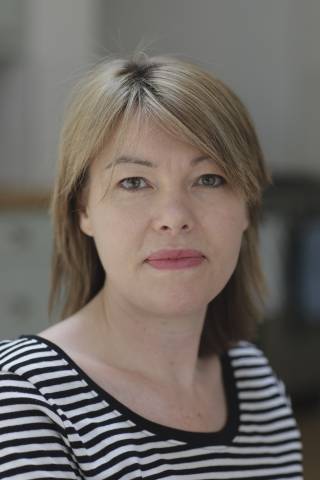
I work in the Obesity Policy Research Unit (OPRU) on several projects relating to infant feeding, including looking at the labels on formula milk and baby foods. In the OPRU we’re also looking at the potential effects of adding calorie labels to alcohol, and how obesity policy might inadvertently impact eating disorders and disordered eating. I’m a Registered Nutritionist and as well as working on OPRU projects, I’m the nutrition lead for a lifestyle intervention called ASCOT, for people living with and beyond cancer.
What is your favourite thing about the work you do?
I really enjoy working on several different projects at the same time and working with great colleagues. It’s also enormously rewarding to think the research we do could have a real impact, by providing the evidence needed to bring about policy change. There is increasing recognition of the importance of legislative change in bringing about changes in the food environment, which ultimately affects the way we eat and our health.
Tell us a bit about your impact project?
I work on several projects looking at the marketing of baby formula and foods – our findings highlight a need for change but food policy discussions, including the National Food Strategy, barely mention babies. In many cases the information presented on labels doesn’t match government advice.
The aim of my project was to raise awareness among key stakeholders and the public of the need for policy change to ensure baby formula and food is marketed in a way that supports parents to make healthy choices.
I set out to do this using research findings from an experiment looking at the effect on parents’ choices of changing baby food labels. I considered forming a group with others, including third sector organisations, with an interest in this space. However, following discussions with third sector organisations and a lobbying expert I have taken a more opportunistic approach to raising awareness of these issues.
Working with UCL’s media relations team and attending the APPG on Infant Feeding Inequalities, I publicised our formula research. I also built relationships and shared research findings and future plans with First Steps Nutrition Trust and The Food Foundation, who advocate for change by working closely with the civil society coalitions, policy makers and the media.
You can hear more about Rana's work at the UCL Minds Podcast (direct link) or read a transcript (pdf link.)
What do you hope will be different at the end of your project?
My hope is that this project will bring us a step closer to getting the labels on baby food changed, which will ultimately make it easier for parents to choose healthy foods for their babies. I would like to raise awareness of current problems with baby food labels among key stakeholders and the public. This is an important step in garnering support for policy change.
What three things would you take to a desert island?
My phone, for podcasts and photos.
My dog, as she’s good company, loves water and she can live without technology, unlike my children.
Following in the footsteps of Desmond Tutu on Desert Island Discs, I’d also take an ice cream maker - who doesn’t like an ice cream on the beach?
- Sharon Cox - Institute of Epidemiology and Health Care
What is your work at UCL about?
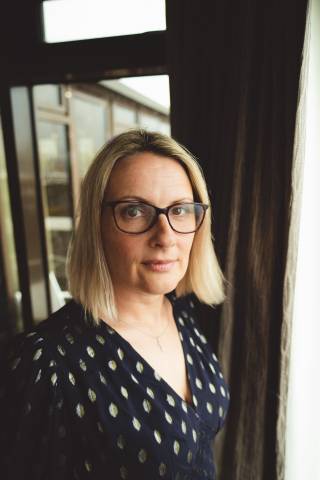
I am a psychologist with an interest in addictive behaviours. My particular interest is in smoking and smoking cessation, particularly among people who experience extreme social disadvantage (e.g., homelessness, substance dependence) and those with a low-income. Along with many colleagues, I investigate changes in smoking at a population level by using large survey data, I also lead a clinical trial helping people using homeless services to quit smoking and am developing materials to help people who support people experiencing homelessness to quit smoking.
What is your favourite thing about the work you do?
Smoking remains one of the single largest causes of premature death and disease, so being able to assist in any way to help people quit is a privilege. Also, being able to work with other academics, policy makers, clinicians and public members who also care about helping save lives gives me immense pleasure. I particularly love my work on homelessness, because it shines a light on a group often understudied in research.
Tell us a bit about your fellowship impact project.
Research conducted in the NHS can face significant hurdles, including in relation to administrative tasks, recruitment and getting buy-in from services. In addition, there is a long-time lag between conducting research and translation into clinical practice. Using the field of tobacco research as an example, this project seeks to obtain insights from the following key stakeholders to enable successful impactful research: 1) academic researchers undertaking trials in the NHS; 2) those working in the NHS who support research (including clinicians); and 3) who commission research and services; 4) those who formulate, influence and implement policy (including civil servants, those working in NGOs and politicians); and 5) those with expertise in media and communication who engage with the public to share findings.
Using two ongoing smoking cessation trials of e-cigarettes as case studies (ESCAPE and SCeTCH trials), we will run a one-day workshop with above-named key stakeholder groups to a) identify challenges and opportunities within the existing framework of conducting clinical trials, b) pinpoint misalignments between aims/methods adopted by those conducting research (e.g., in terms of trial design/key deliverables) and the information needs of those formulating policy, commissioning services and those communicating findings to the wider public, and c) develop a step-by-step guidance document to maximise successful translation of research ideas, into intervention evaluation implementation in clinical settings, aligned with tobacco control policy. The workshop output, a transparent toolkit for designing smoking cessation trials in clinical settings to maximise impact, will be hosted online on the UTARG website.
You can hear more about Sharon's work at the UCL Minds Podcast (direct link) or read a transcript (pdf link.)
What do you hope will be different by the end of your project?
I hope that I will be able to interest a wider network of individuals into the issues and importance of smoking and homelessness. I hope to be able to secure valuable networks by which knowledge can be shared but also communicated effectively, and with compassion.
What three things would you take to a desert island?
A cheeseboard, a pillow, and a kayak
 Close
Close



